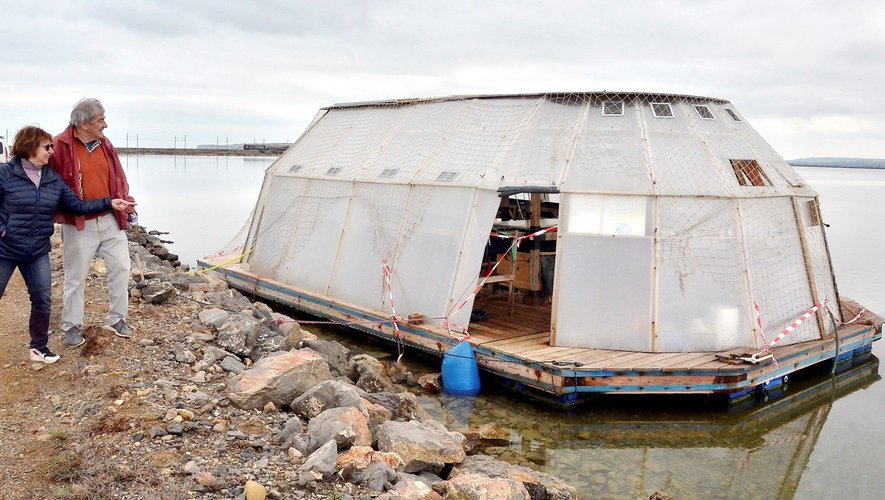This tortoise is not Greek, nor Moorish, nor Hermannian. She is a “gardener” and somewhere contributes to some form of Cretan diet. The turtle from the association Paysans Terre Mer must leave the salt marshes of La Palme on the Aude coast, where it has been tested in extreme conditions and where it has proven itself for two years. It is looking for a new meadow to bloom, on land or water…
When Paysans Terre Mer, led by agronomist François Plassard, responded to a call for expressions of interest in 2017 to submit sustainable solutions to climate change, food and human health, some skeptics smiled. “Floating garden turtle with solar stills”, a funny idea to provide on the coast answers to the future lack of food autonomy, high costs of arable land, soil salinity, destructive fires… But after months of calculations, tests, projections, passionate and exciting meetings, at all the first TMF was born in rented premises in Prat-de-Cest near Narbonne. Then, in 2020, the juvenile structure was lowered into the water, on the salt flats of La Palme.
Produce without fresh water and in extreme conditions
The aim was to find out if it is possible to grow plants and vegetables without fresh water and in extreme conditions, such as a pond exposed to all winds and with three, even four times the salinity of the sea. in summary, the garden turtle is a completely autonomous agricultural production unit. Water is produced by condensation, its circulation is ensured by pumps powered by electricity produced by solar energy, fertilizer is provided by fish (trout, perch or sea bass) in the ponds, fed with lupine, thanks to their excrement. And it works! The production area ratio is six times larger than that of a classic garden. Fresh water saving is 95%. The working time is divided by three and the comfort is invaluable, because the turtle is worked standing up.
A viable and promising model
Today, François Plassard and the entire mobilized team can rejoice because, against many opinions, they have been able to demonstrate that the model is viable and brings hope at a time when global warming is inexorably accelerating and where the industrial system of food production is regularly challenged. The AOT (Right to Occupy Public Domain) granted to the association by the state expired a few weeks ago. Therefore, the turtle must leave the body of water and be adopted elsewhere to serve as an example of a sustainable (and friendly) way of farming.
Also read:
Aude: in La Palma, a floating garden turtle was calling to… reproduce
Now that its reliability has been tested in extreme conditions, François Plassard and association secretary Christine Dauzats have good reason to be optimistic about its future and other larger projects, such as the “seven-petaled flowers of garden turtles” project. which will be revealed soon.
A durable agricultural project and an undeniable social vocation
For the association Paysans Terre Mer, the market garden turtle model is interesting in many ways. Christine Dauzats, treasurer of the association, explains: “It can be a demonstration of sustainable development for communities, a means of training and job development, an intergenerational place that renews society for citizens, a local economy that develops its autonomy; with interaction. of all the forces of the territory”. “It can generate new agricultural incomes for sectors that are currently or will be in trouble in the near future, illustrate the prospects of sustainable ecotourism, bear witness to life, serve for training in aquaponics,” argues Christine Dauzats, super VRP of the association. And propose economic models for the benefit of town halls, municipalities, businesses, experts, associations and individuals. Farmers on land and sea believe in the future. And as everyone knows, turtles have unparalleled longevity. So there is every reason for optimism.

